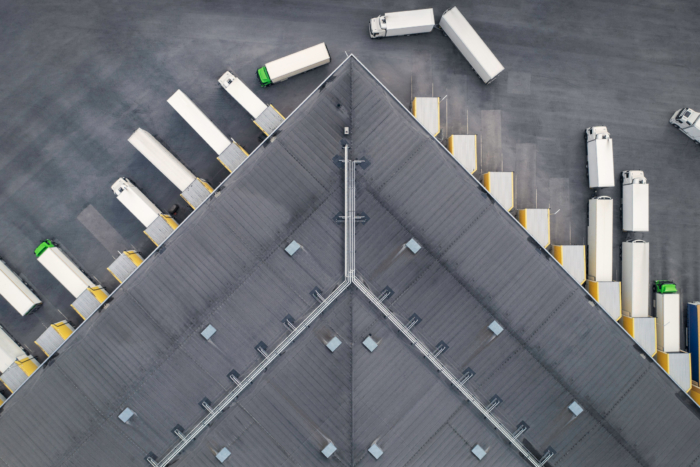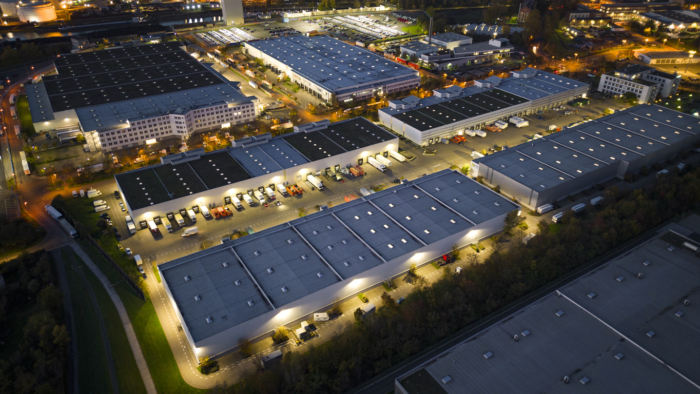
What happens when an innovative TMS startup and an established player in the Belgian transport join forces? It turns out to be a cross-pollination that benefits both parties.
Altrea Logistics Group sought efficiency and modernisation and found Qargo TMS. In just one year, one of the youngest transport systems on the market aims to unite their entire group into one system, presenting a significant challenge for both players.
Altrea Logistics originated from Alders Transport and has experienced phenomenal growth in recent years following the acquisition of several transport companies. As a result, the Altrea group now consists of various companies with their own specialties and identities and, until recently, each had its own transport management system.
Across the group, the different parties were using three different software packages to manage their transport. This historical evolution created a puzzle that was far from efficient. There was a need for standardisation, and on the other hand, the group also had a hunger for modernisation.
Thomas Havermans, Altrea’s IT Manager, took on the challenge of finding a TMS that could be used across the entire group, stating, ‘If the whole group uses the same TMS, it has to have a positive impact on operational efficiency and the quality of service we can provide.’
A scalable solution for complex challenges
The software had to meet several important requirements for Altrea. ‘We wanted software-as-a-service from an innovative player who could support the entire group in the long run. We were looking for a partner who could actively brainstorm with us about the challenges faced by different companies and address those challenges with modern technology. The solution also had to be scalable to support us in the future.’
As an example of the specific challenges a TMS at Altrea had to meet, Thomas mentions the planning of tank containers and trailers. ‘One of our companies has a limited number of vehicles but a large number of tank containers located throughout Europe that need to be tracked, not only for their movement from A to B but also in terms of content and composition. The TMS needed to clearly indicate the latest product in a container, its handling history, and whether the container had been cleaned afterward. This, combined with the planning of the chassis on which the containers can be loaded, is particularly complex.’
‘Intermodal transport also needed to be integrated into the system, meaning containers placed on trains or ferries, whether manned or unmanned, should be tracked from start to finish.’
Each company retains its uniqueness
Ultimately, Thomas found the ideal partner in Qargo, a new TMS that had primarily worked with smaller Belgian transport companies. CEO Adriaan Coppens explains, ‘In 2022, Thomas approached us with a specific request to have all their companies under one TMS by the end of 2023. The biggest challenge was that the companies operated in different ways. We had to make them collaborate as efficiently as possible without forcing everyone into the same mold. And we succeeded. Each company has its own environment tailored to its needs and workflows, and thanks to the new Qargo network module, they can even exchange orders to optimise planning within the group. Companies can utilise each other’s resources without having to work in exactly the same way.’
Each company has its own environment tailored to its needs and workflows, and thanks to the new Qargo network module, they can even exchange orders to optimise planning within the group.”
Adriaan Coppens, CEO and Founder of Qargo
‘Altrea is one of the market leaders in Belgium, so we know that the questions we receive from them today will likely come from our current customers tomorrow. This is already evident because several innovations developed for Altrea are now being enthusiastically used by our other customers, such as integrations with accounting software and on-board computers, trailer planning, or the ability for subcontractors to engage in self-billing.’
Improved operation for Altrea, a better product for Qargo.”
The collaboration was a win-win situation, Thomas believes. “We work together as partners and can learn from each other. Qargo draws ideas from the experience and expertise of our employees and translates them into user-friendly and efficient solutions. This results in improved operation for us and a better product for them.”
Meanwhile, the rollout in the first five companies of the group has been completed. The baptism by fire was for Haesaerts Intermodal, which was using the most outdated system and had to make the switch to Qargo TMS as quickly as possible out of necessity. The first implementation proved to be a good test, and soon after, Alders Bulk Logistics followed suit. “Originally, we wanted to start in March, but because we wanted to be live when requests from the agricultural sector began to come in, we advanced the implementation. We have now gone live with both Haesaerts and Alders Bulk Logistics in the first quarter: two implementations within the time frame we had planned for one, which doesn’t happen often,” Thomas laughs.
So far, the feedback from employees has been unanimously positive.”
The transition from the old system to the new one happens overnight. A streamlined transition is a significant challenge because unfinished orders and historical data also need to be immediately available in the new software. However, so far, the feedback from employees has been unanimously positive.
In April, Alders International Transport and Alders Transport Germany followed, in May, Alders Central Europe in Budapest, and now, Vandenbroeck, Trafuco Tank, and Trafuco NV are following suit. “So, we are well ahead of schedule to have the entire group fully operational in Qargo by the end of the year,” concludes Adriaan.







